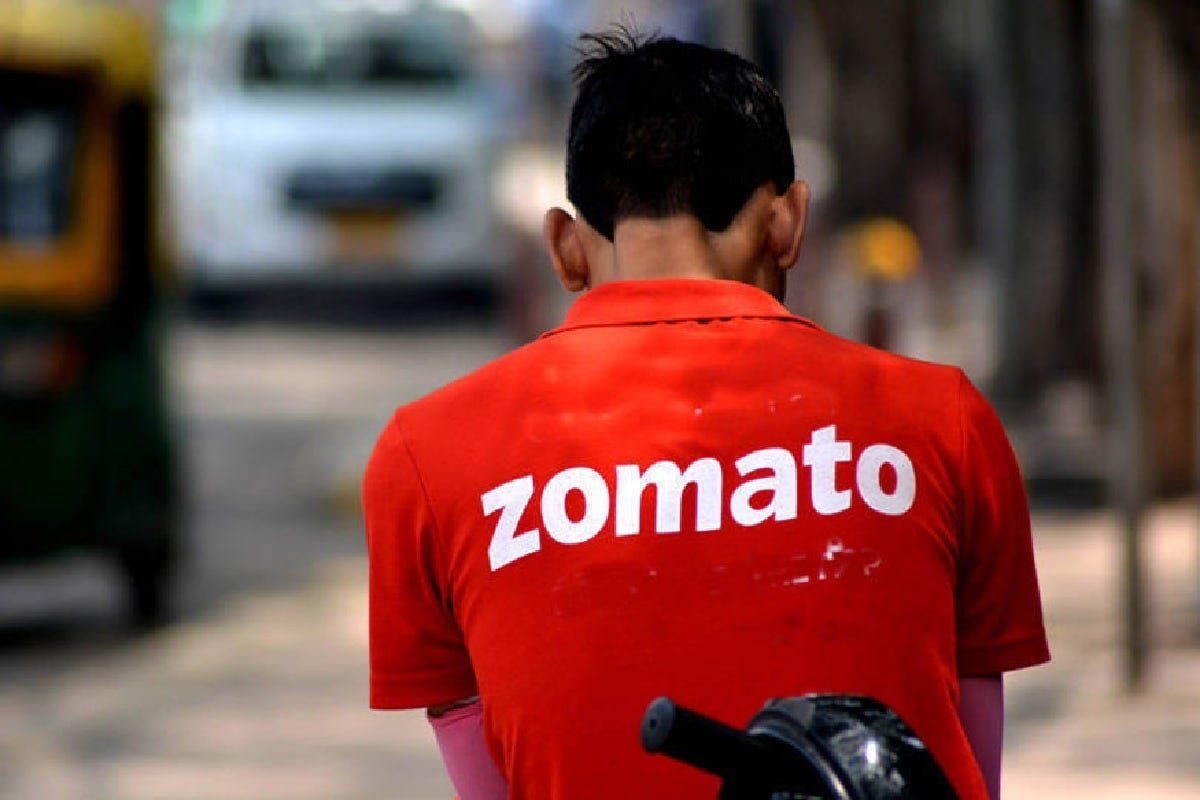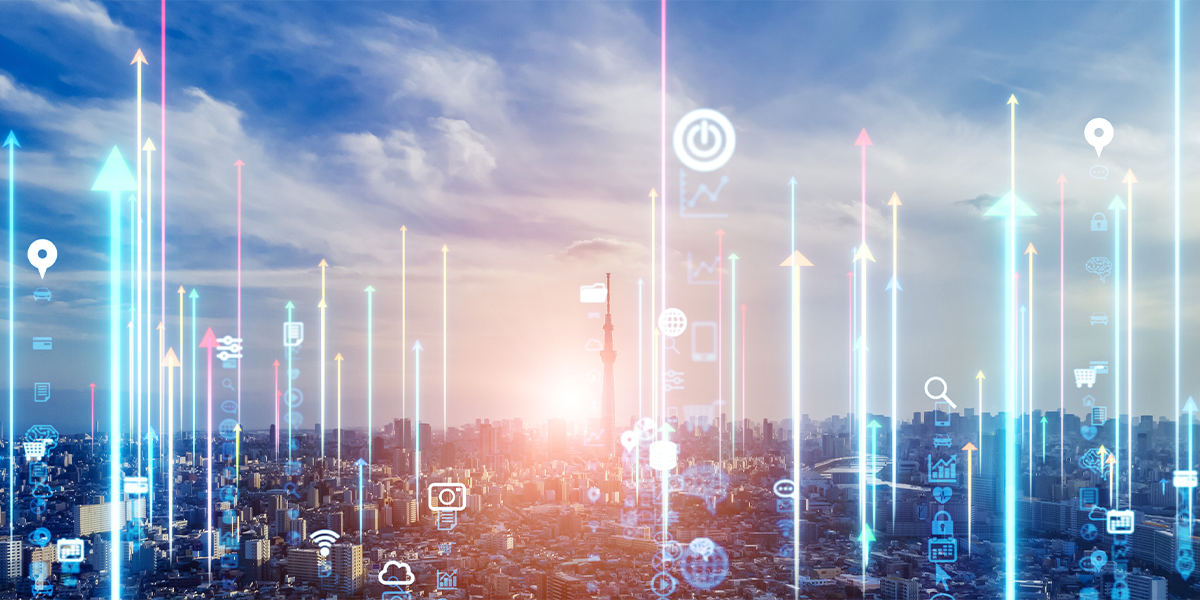Zomato's IPO and the future of tech companies
The six features of a tech company

Despite operating a traditional food business, Zomato epitomizes a modern tech company: Zomato, a food delivery company, is aiming to transform the eating habits of 1.36 billion people in India. In mid-July, its initial IPO was oversubscribed 35 times, giving it a valuation of $12 billion. Despite operating a traditional food business, Zomato epitomizes a modern tech company, and its successful IPO can teach us what a modern tech company is — and what it isn’t. It can transform whole industries, achieve expansion of scale and scope at breakneck speeds, and make enormous profits, all without requiring significant capital investments.
In mid-July, Zomato, a food delivery company, listed its shares in Indian stock markets. Its initial public offering (IPO) was oversubscribed 35 times, giving it a valuation of $12 billion. Why does a loss-making company — with no real properties or assets — command such high valuation and attract global celebrity investors like Fidelity, Morgan Stanley, Canadian Pension Fund, and the Singapore Government?
Like DoorDash and SkipTheDishes, it delivers ready-to-eat food to homes without owning farms, food stores, restaurants, warehouses, trucks, or delivery vehicles. Its business model is similar to those of other tech companies like Uber, Amazon, and Airbnb, but differs subtly from the likes of Facebook and LinkedIn.
For example, WeWork is not a tech company, despite its claims to the contrary. WeWork’s failure at IPO and Zomato’s success can teach us what a modern tech company is and what it isn’t. In our opinion, a successful modern tech company can transform whole industries, achieve expansion of scale and scope at breakneck speeds, and make enormous profits, all without requiring significant capital investments. It typically has most, if not all, of the following six features.
The 6 Features
- Rapid industry transformation. Zomato aims to transform the eating habits of 1.36 billion people in India, where 90% of the population doesn’t eat at restaurants. Compare that to China, where 58% of people routinely eat at restaurants. Previously, there were two hurdles to dining out in India. The first was sheer logistics: Just 2% of Indian households own sfirts (compared to almost 98% of U.S. households). The second was cultural taboo: Some people would never eat food cooked in someone else’s kitchen. Zomato clears both of these hurdles: It gives a new segment of the population access to restaurant food by delivering it with the touch of a button. It also brings down cultural barriers by encouraging users to provide feedback — people will be less reluctant to try restaurant food when they see their own family members or people from their own caste and peer groups doing so and providing recommendations about dishes and restaurants. While a food-delivery app may feel familiar to many of us, Zomato potentially transforming the eating habits of a huge number of people is no less ambitious than what Uber or Airbnb set out to do. Uber empowers millions to get rides from strangers and now employs more cars than any taxi company in the world. Airbnb facilitates staying at strangers’ houses and offers more rooms than any hotel chain in the world. Thanks to these companies, people don’t need to own their own kitchens, cars, and homes in order to enjoy their privileges. This virtual shared ownership creates value for people by improving asset utilization and lowering the risks that come with asset ownership.
- Low capital costs yet extremely valuable local assets. Google Search, Airbnb, Yelp, Uber, LinkedIn, and Facebook share one common feature: They have scalable virtual models that can be magnified exponentially with few additions to their asset bases. This is unlike a company like, say, Ford or Target that would require land, factories, distribution centers, or warehouses to expand. Put another way, tech companies can expand their revenues and income statements with little addition to their balance sheets. Zomato, a multibillion-dollar company, doesn’t even own an office. Nevertheless, Zomato differs from other tech giants in one important respect: Companies like Google and Facebook can serve a foreign country without having a physical presence there. In contrast, Zomato enters new cities only after establishing relationships with local restaurants, assessing their offerings, and working with them to improve their menus and pricing. It also identifies, evaluates, and appoints local delivery agents. Zomato thus invests large amounts in local relationships and local knowledge — soft assets that cannot be easily replicated by competitors.
- Customer intimacy. Modern tech companies collect, store, organize, and analyze years of user data. This data is virtual gold, as it enables companies to run targeted ads and personalize the customer experience. The key difference between a customer walking into a Walmart supercenter and Amazon’s online store is that Amazon instantaneously reorganizes the whole store (layout, displays, product offerings, etc.) in a way that’s tailormade for that customer.Similarly, Zomato or Uber Eats can track a customer’s tastes, need for discounts, and preferences in terms of cuisine, delivery time, and price and combine those insights with local food trends, seasonality, and holidays and festivals to offer a customized menu instantaneously. This level of customer intimacy increases switching costs for customers, imposing significant barriers to entry for new players.
- Network effects. For most modern tech companies, the bigger the network, the more valuable the company. There are three types of network effects: direct network effects, indirect network effects, and data network effects. Tech companies like Facebook and LinkedIn benefit from direct network effects. Each new customer joining Facebook or LinkedIn creates value for an existing customer because both customers can now create direct links with each other, even if they’re located in different places. The thousandth customer joining the network creates more value than the tenth, fiftieth, or hundredth customer, because the thousandth customer can create 999 new links, while the tenth can create just nine links.Tech companies like Netflix, Amazon, Uber, and Zomato don’t have direct network effects. If a new customer joins Zomato, they don’t create a direct new link with current customers. Similarly, a new restaurant joining Zomato doesn’t create value for current restaurants using Zomato. However, in a two-sided platform like Zomato, there are indirect network effects. The greater the number of customers, the greater the value for restaurants and vice versa. Now customers have more choices, restaurants have a bigger market, and the delivery network can be utilized more efficiently. More important, Zomato benefits from data network effects. Every new customer and restaurant contributes valuable data that Zomato can use to improve the value proposition for all existing users by enhancing the quality and depth of feedback, understanding usage habits, optimizing logistics, troubleshooting, and growing the repository of local tastes and preferences. Machine learning keeps improving these insights. Zomato can now provide more personalized recommendations for each customer and better connect restaurants to their target customers based on collective learning across its customer base. This improvement, when coupled with increases in the number of delivery agents and restaurants that get attracted to the bigger market, improves the options of products and services while lowering costs. Zomato calls it a “flywheel effect,” and every new customer and supplier joining the network adds to the flywheel’s momentum.
- Ecosystems that boost expansion with minimal costs. A modern tech company can leverage its relationships with customers to deliver new lines of products and services. Companies that rely on ecosystem partners’ assets can achieve this at little additional cost. Consider Apple’s use of the iPhone and Amazon’s use of Echo devices to sell apps, music, games, and videos produced by third parties — and doing so using their own payment services. Apple and Amazon then take a cut from each dollar flowing through their systems. As another example, Uber extended its rideshare service to Uber Eats with minimal investment. Similarly, Zomato can extend its offering of restaurant food to include pre-sorted, ready-to-cook ingredients; in fact, it’s already leveraging its relationships with restaurants to source ingredients for them. Zomato also books tables for customers at its partnering restaurants by offering customized recommendations based on customer insights.
- Variable costs and margins. Google Search, Microsoft, Twitter, and Facebook can scale up their revenues with minimal variable costs. It costs relatively little to make another copy of Windows 10 or service another Google or Facebook customer. Facebook’s gross margins, for instance, run as high as 80–85%. The same concept, however, does not apply equally to Uber, Airbnb, Amazon, and Zomato. Large parts of their revenues are passed on to suppliers, such as restaurants (Zomato), car drivers (Uber), and homeowners (Airbnb). In addition, Amazon and Zomato must pay their delivery agents. But improvements in scale, knowledge about suppliers, and increases in bargaining power cut those variable costs. Futuristic technologies like drones, robotics, and autonomous vehicles can further reduce delivery costs. Increased scale improves unit economics — the profits obtained from each new unit of transaction — by improving revenues and lowering per-unit costs. Rapid growth thus becomes an inherent part of a firm’s strategy.
It’s noteworthy that asset-light “tech” companies that display these six characteristics have commanded large valuations in the 21st century. As of July 2021, the combined market capitalization of FAANG companies (Facebook, Apple, Amazon, Netflix, and Google) plus Microsoft stands at almost $9 trillion, which exceeds the GDPs of all nations in the world except two. So Zomato’s high valuation shouldn’t come as a big surprise. After all, it’s a proven tech company that aims to transform the eating habits of a billion-strong nation.
Today’s tech giants must be contrasted against industrial giants of the 20th century: Ford Motors, General Electric, Dow Chemicals, Standard Oil, Union Pacific, etc. Those companies also transformed industries and society. They required large-capital investments that took decades to build. Yet despite being asset-light in traditional sense, a 21st century tech giant commands a library of soft assets that cannot be replaced or reproduced easily. How easy is it to obtain the trust of and reproduce the relationships, networks, and personalized data of 1.5 billion Facebook subscribers?
Alessio De Filippis, Founder and Cheif Executive Officer @ Libentium.
Founder and Partner of Libentium, developing projects mainly focused on Marketing and Sales innovations for different type of organizations (Multinationals, SMEs, - Start-ups).
Cross-industry experience: Media, TLC, Oil & Gas, Leisure & Travel, Biotech, ICT.











